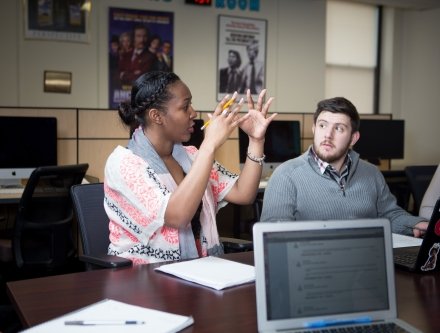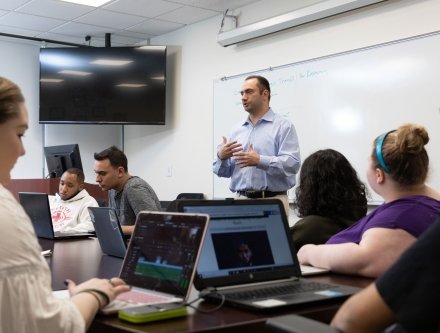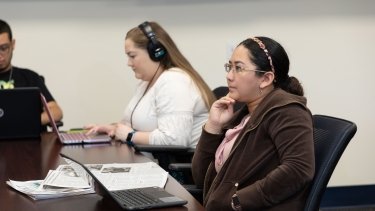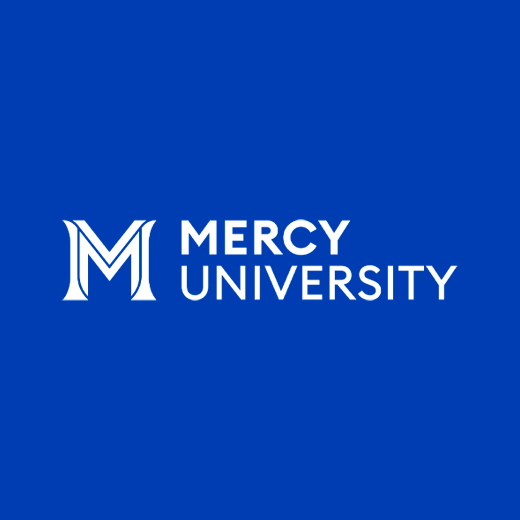
Media Studies: Digital Journalism
- 120 Credits
- School of Liberal Arts
- Westchester
The Digital Journalism concentration teaches students a variety of writing styles exhibited in the daily press, both in print and on the web. News reporting skills, feature and magazine writing, and newsletter writing are among the skills taught. Through this concentration, students publish in the award winning University publication called The Impact found online at https://theimpactnews.com/ . Other creative writing courses are available such as screen writing, digital writing, sports writing, entertainment writing, and enterprise writing.

Media Studies: Digital Journalism Overview
In our Media Studies program, you’ll develop the creative and technical skills to set you apart in any media-related path you choose. You’ll learn to use media technology to communicate effectively and keep up with the industry’s ever- changing demands.
Media Studies offers three specializations so you can tell your story your way. Explore Cinema Studies, Digital Journalism, and Media Production.
Our faculty are professionals working in the fast-paced industry with teaching experience. The knowledge and techniques you acquire will prepare you for a lifetime of unforgettable storytelling.
Career Opportunities
News and content are more important than ever. Your Media Studies degree can set you up in just about any field where great writers, producers and communicators are needed.
Publishing
- Reporting
- Editorial/Column Writing
- Investigative Journalism
- Advertising/Sales
Writing
- Technical Writing
- Creative Writing
- Screenwriting
Business
- Public Relations
- Media Relations
- Management
Video and Radio
- Production
- Editing
- Writing

Internships & Experience
Internships are crucial in obtaining real-world experience, building connections and exploring career choices. Students can intern at major media outlets near campus in the New York City area or anywhere they want.
Students have completed internships for organizations including:
- New York Times
- Wall Street Journal
- Westchester Magazine
- Journal News
- MLB.com
Want More Info?
We'd like to hear from you! Get more information.
Frequently Asked Questions
Full-time students can complete the 120-credit degree program in four years.
Yes, faculty are always ready to help students with questions about what courses to take, the sequencing of courses, and career opportunities, including internships and cooperative education.
Yes, internships are a required part of our curriculum. Students have interned at leading news and communications organizations such as The New York Times, The Wall Street Journal, Westchester Magazine, The Journal News, and MLB.com to name a few.
Writers are needed in all organizations and the valuable writing skills you learn can be transferred to many career paths. Over 67 percent of the program's graduates got jobs after graduation in the file they studied or related fields. These graduates work at Time, Inc., Wiley Educational Publishing, Christian Science Monitor, Gannett Newspapers, and The Rivertowns Enterprise.
You’ll have the opportunity to learn and practice here what you might not elsewhere, including writing in a variety of writing styles. Complete semesters are spent in individual areas such as news reporting, feature article writing, enterprise writing, web writing, and magazine writing just to name a few.
Students in this concentration produce a news publication called The Impact. This award winning newspaper, which is distributed to the entire University community and available online at theimpactnews.com enables its student writers to build a portfolio, a useful tool when interviewing for a job as a writer.
Program Details & Curriculum
General Liberal Arts and Sciences
General Education Requirements: 60 Credits
Major Concentration
History: 48 Credits
Open Electives: 12 Credits
Total: 120 Credits
For a full curriculum listing visit our catalog.
By the end of this program, students should be able to:
- Develop appropriate creative, technical, and communication skills necessary for work in media related fields
- Acquire the knowledge and skills that will prepare them for careers in their chosen fields
- Use media technology to communicate and present material as per their major
- Create personal and social presentations in their chosen media
- Find ready employment in their chosen fields or continue onto advance study
Download a copy of the sequence map for:
ARCHIVE:
- 2024 - 2025 B.S. Media Studies: Journalism
- 2023 - 2024 B.S. Media Studies: Journalism
- 2022 - 2023 B.S. Media Studies: Journalism
- 2021 - 2022 B.S. Media Studies: Journalism
2020 - 2021 B.S. Media Studies: Journalism
Full-Time Faculty
Louis J Grasso
- VIC 205A
- LGrasso@mercy.edu
- (914) 674-7615
Michael Perrota
- VIC 211A
- MPerrota@mercy.edu
- (914) 674-7422



